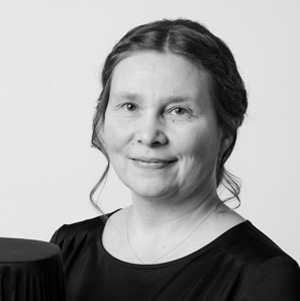Bridging Policymakers and Evidence for Better Healthcare
Authors: Saija Ylimäki1,2,3, Maria Kääriäinen1,2,3, Heidi Parisod 3,4 and Kristiina Heikkilä3,4
1. Research Unit of Health Sciences and Technology, University of Oulu, Oulu, Finland
2. The Wellbeing Services County of North Ostrobothnia, Oulu, Oulu, Finland
3. JBI Finnish Centre for Evidence-Based Health Care, Helsinki, Finland
4. Nursing Research Foundation, Helsinki, Finland
Evidence-based social and healthcare services have been shown to be high quality, safe and cost-effective. In addition, they are meaningful, useful and appropriate, as well as promoting job satisfaction, employee retention and recruitment. In Finland, the production, organisation and financing of social and healthcare services are determined by political decision-making. Policymakers are citizens with diverse educational and professional backgrounds. Therefore, they are not necessarily experts in social or healthcare. For this reason, it is extremely important to increase policymakers’ understanding of the operations, objectives and processes of the evidence-based healthcare (EBHC) model, as well as its significance for clients.
EBHC model supporting understanding of evidence-based healthcare
To date, in Finland, awareness of the EBHC model has primarily been promoted through the Nursing Research Foundation (NRF) and the JBI Finnish Centre for Evidence-Based Health Care. The EBHC model, along with its operational processes, is broad, and making it more understandable requires effort. Popularising the model demands illustrative examples tailored to different contexts to help clarify the process of EBHC.
All communities and research and education organisations promoting EBHC have a responsibility and obligation to interactively share knowledge of the processes, goals and outcomes of evidence-based social and healthcare to all decision-makers and citizens. This is essential to ensure that the significance of evidence-based social and healthcare is understood uniformly at all levels of decision-making. Additionally, new support structures should be developed to interactively enhance policymakers’ competence in evidence-based social care and healthcare. In addition, it is particularly important to listen to the thoughts and experiences of decision-makers and citizens about healthcare services and the importance of EBHC.

Promoting participatory knowledge-sharing in EBHC
The EBHC model is widely applicable across various fields, even though it was developed in the context of healthcare. However, the model is rarely explicitly discussed in different sectors, even though it often forms the underlying framework for many developments. To address this gap, new opportunities for participatory knowledge exchange—where the structured EBHC model is brought to the forefront—should be actively developed. One way could be through collaboration and research between scientific disciplines—especially between health sciences, social care, education and social sciences. The model could provide a valuable platform for a shared discussion about EBHC, its meaning and implementation and promote a common understanding of the value of evidence in supporting sustainable social development and improving well-being.
In addition to participatory collaboration between researchers, it is essential to create similar participatory collaboration for decision-makers and citizens. Their perspectives provide critical insights into how EBHC can be effectively implemented in real and changing circumstances. Participatory approaches could include discussion forums, collaborative workshops or the co-creation of policy guidelines. These kinds of opportunities can support mutual learning, broaden perspectives and strengthen commitment to evidence-based decision-making. They also ensure that everyone feels heard and involved in the development of EBHC, while at the same time gaining new insights into the model itself and using it in practice and policy-making.
Towards increased understanding
The University of Oulu, in collaboration with the Nursing Research Foundation, JBI Finnish Centre for Evidence-Based Health Care and universities of applied sciences in Northern Finland, along with the wellbeing services counties, has annually organised an EBHC webinar for professionals in social care and healthcare. In the future, the webinar’s target will be expanded to the audience to include regional policymakers. Furthermore, a broader collaboration aimed at systematically developing the EBHC competence of policymakers will be conducted through various interactive methods such as webinars, workshops, discussion forums, education and policy briefs.
We also encourage all teachers in social and healthcare education to familiarise themselves with the evidence-based model and its process and use it in teaching students. It is important that future decision-makers, experts and professionals understand the process of EBHC to ensure that ethically and responsibly sustainable decisions are made in the future.
References
Jordan Z, Lockwood C, Munn Z, Aromataris E. The updated Joanna Briggs Institute Model of Evidence-Based Healthcare. Int J Evid Based Healthc. 2019;17(1):58-71. doi: 10.1097/XEB.0000000000000155. PMID: 30256247.
To link to this article - DOI: https://doi.org/10.70253/UQAQ9816
Disclaimer
The views expressed in this World EBHC Day Blog, as well as any errors or omissions, are the sole responsibility of the author and do not represent the views of the World EBHC Day Steering Committee, Official Partners or Sponsors; nor does it imply endorsement by the aforementioned parties.

Dr. Saija Ylimäki conducts research at the University of Oulu on healthcare leaders’ and professionals’ competence in evidence-based healthcare and their collaboration with policymakers. She also serves as a regional councilor in The Wellbeing Services County of North Ostrobothnia.